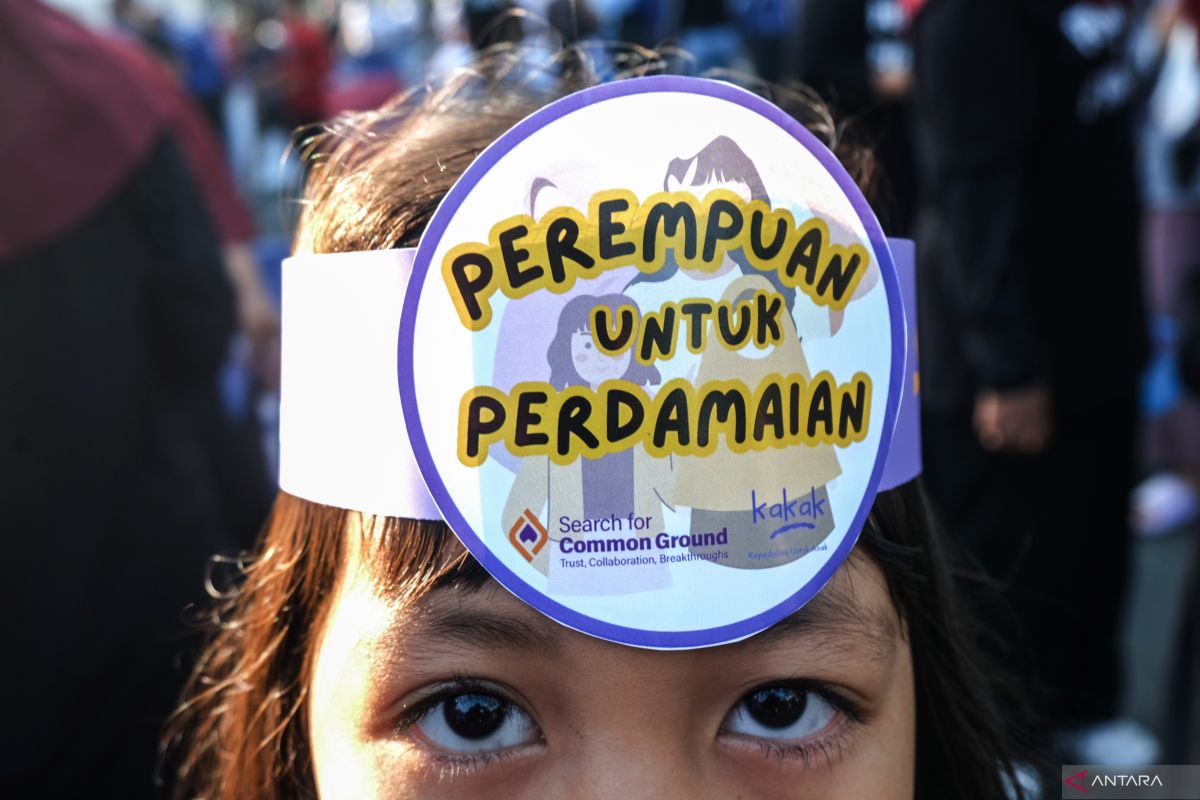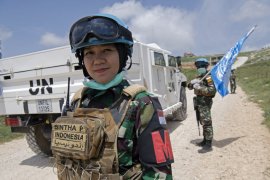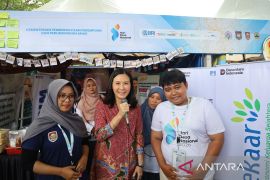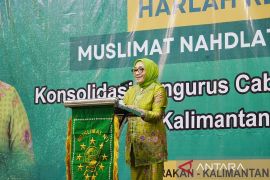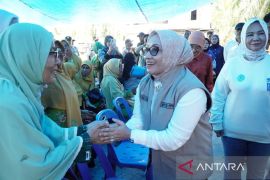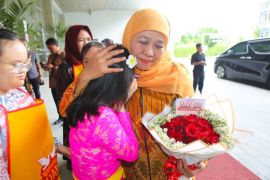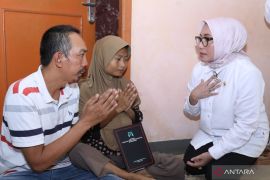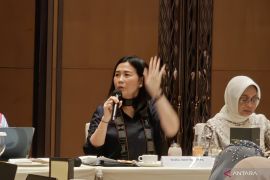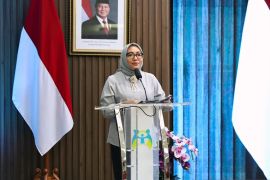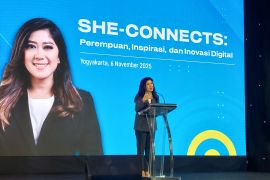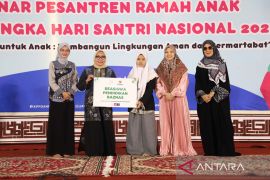As natural nurturers, women make intergroup communication more inclusive and effective.Jakarta (ANTARA) - Ai Yuliansah still vividly recalls the day when her community’s Ahmadiyah mosque, still under construction, was attacked by a mob of unknown people.
The incident happened in 2021 during the pandemic. At a time when public gatherings were restricted, intolerance ironically gathered in numbers.
As Chair of Lajnah Imaillah, the Ahmadiyah women’s organization in Garut Regency, Ai saw women in her community overwhelmed with grief, fear, and helplessness.
“I saw mothers embracing their children. They were crying, they were confused, they were questioning what had happened and why,” she said.
The victims in Nyalindung Village, Cilawu District, told her they did not recognize the attackers, many of whom had come from outside their area.
Acts of intolerance strip victims of safety and belonging, often leaving psychological scars. For Ahmadiyah members, this also means living under suspicion, constantly feeling watched and distrusted.
“We were born and raised here. We interact like any other residents,” Ai said.
“This situation often makes us, Ahmadiyah women, feel we need to hide ourselves and avoid speaking up, so we won’t draw attention,” she added.
But fear does not silence Ai. Her community believes tolerance must be nurtured, not abandoned. Lajnah Imaillah refuses to be trapped by the label “minority group.” Instead, they focus on being present and engaging openly with others.
Their actions include blood donation drives and community service across religious lines. Such efforts, Ai believes, can dismantle stigma and build trust.
Intolerance in Garut extends beyond the streets and appears in digital spaces too. In one WhatsApp group, A’ryani Santoso received offensive stickers: one mocking Jesus, another bearing the word kafir, meaning infidel.
The senders brushed it off as a joke, but A’ryani refused to stay silent.
“Women don’t usually fight back, but we can if we are trained to,” she said.
Raised in an interfaith family, with a Muslim father and a Catholic mother, A’ryani grew up with compassion across faiths. “We never argued about religion at home. We asked questions, we shared knowledge,” she recalled.
At just 15, she joined the 2023 Youth Interfaith Camp to strengthen her understanding of diversity and speak out against prejudice.
Related news: National "vaccines" can lower threat of intolerance, radicalism: BNPT
Eliminating prejudice
Conflicts over freedom of religion and belief are rooted in intolerance. Intolerance comes from prejudice, and prejudice is formed out of ignorance.
In many cases of religious violence in West Java, various factors contribute to the recurring incidents. These include economic and educational disparities as well as political intentions.
A report by the SETARA Institute shows that West Java recorded the highest number of violations of religious freedom in 2024, with 38 incidents. This figure remains unchanged from the previous year.
Fatayat NU (Nadhlatul Ulama women’s organization) in West Java views this peace-threatening issue as a serious concern. That is why the group joined JISRA, the Joint Initiative for Strategic Religious Action, a movement involving interfaith communities.
“There are more tolerant people in West Java, but sometimes they just become the silent majority as they feel too comfortable in their position,” said Neneng Yanti Khozanatu Lahpan, Program Manager of JISRA Fatayat NU West Java.
Through this initiative, they hold cross-faith dialogues where women are actively involved and safe spaces are created. Neneng believes that understanding those who are different begins with open conversations.
JISRA Fatayat NU reached out to religious leaders, especially in Garut and Tasikmalaya, hoping they would promote peace and tolerance within their communities.
At first, this proved very difficult. Women were not seen as typical actors in such “serious” issues. But in reality, women possess resilience, as they are used to facing everyday challenges.
There was also resistance from minority groups, which was understandable given their experiences and fears.
“But over time, minority groups became more confident and felt accepted. The more we met and talked, the more we knew each other. When we mutually understand, the prejudice fades,” Neneng explained.
These interfaith dialogues are used by Ai and the Ahmadiyah women’s community to introduce themselves and contribute meaningfully. They promote peaceful narratives with an approach only women can bring: gentle and empathetic.
Ai believes this is the added value of women in addressing intolerance. As natural nurturers, women make intergroup communication more inclusive and effective. Women calm situations; women de-escalate conflicts.
Related news: Ministry asks educational units to rid intolerance, embrace diversity
The government’s role
Even with the significant role women play in peacebuilding and resolving intolerance conflicts, the state must also contribute through regulations and policies.
Indonesia has already implemented a framework under the Women, Peace, and Security (WPS) agenda, which is the National Action Plan for the Protection and Empowerment of Women and Children in Social Conflicts (RAN P3AKS).
However, West Java has not yet adopted the policy into its local framework. The province instead relies on Regional Regulation No. 2 of 2023, which focuses on three areas in addressing intolerance: prevention, response, and empowerment.
“The West Java government aims to empower women, not only as victims to be helped, but more importantly as agents of peace,” said Siska Gerfianti, Head of the Department of Women’s Empowerment, Child Protection, and Family Planning in West Java.
Involving women is believed to address the root causes of intolerance—education and economic gaps—as well as to support advocacy for rebuilding sociocultural structures damaged by conflicts of intolerance.
Such collaborative efforts will not only resolve many existing cases of intolerance but also build resilience so that similar conflicts do not happen again.
Related news: VP Gibran discusses intolerance handling with PGI, GAMKI
Editor: M Razi Rahman
Copyright © ANTARA 2025
